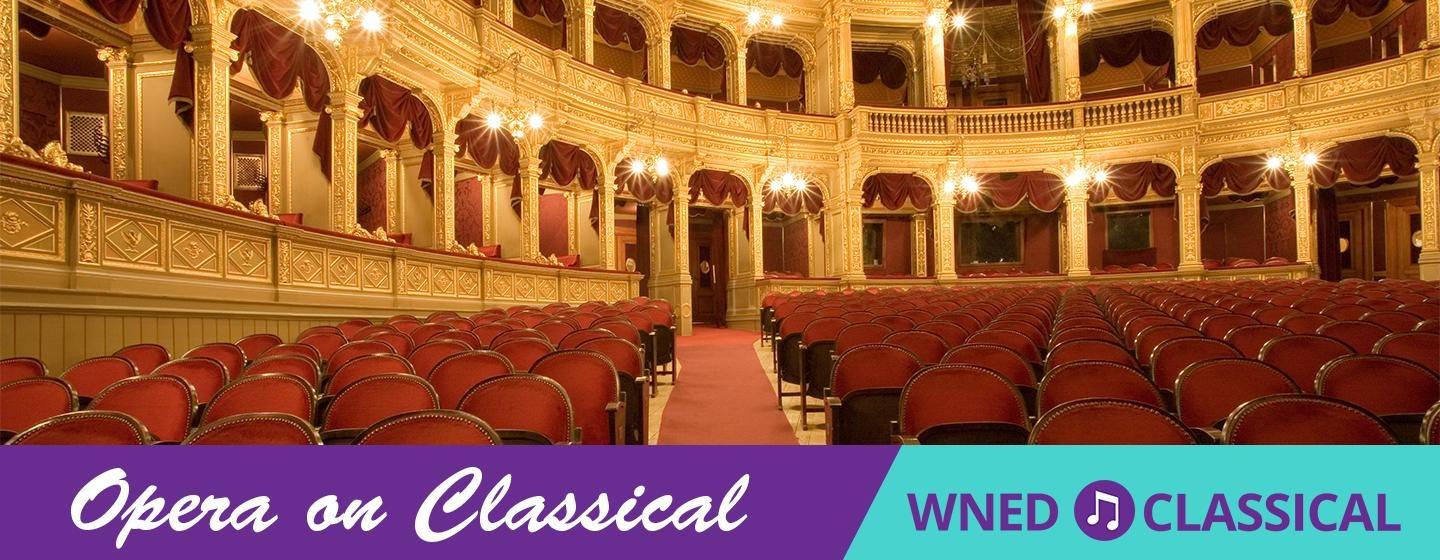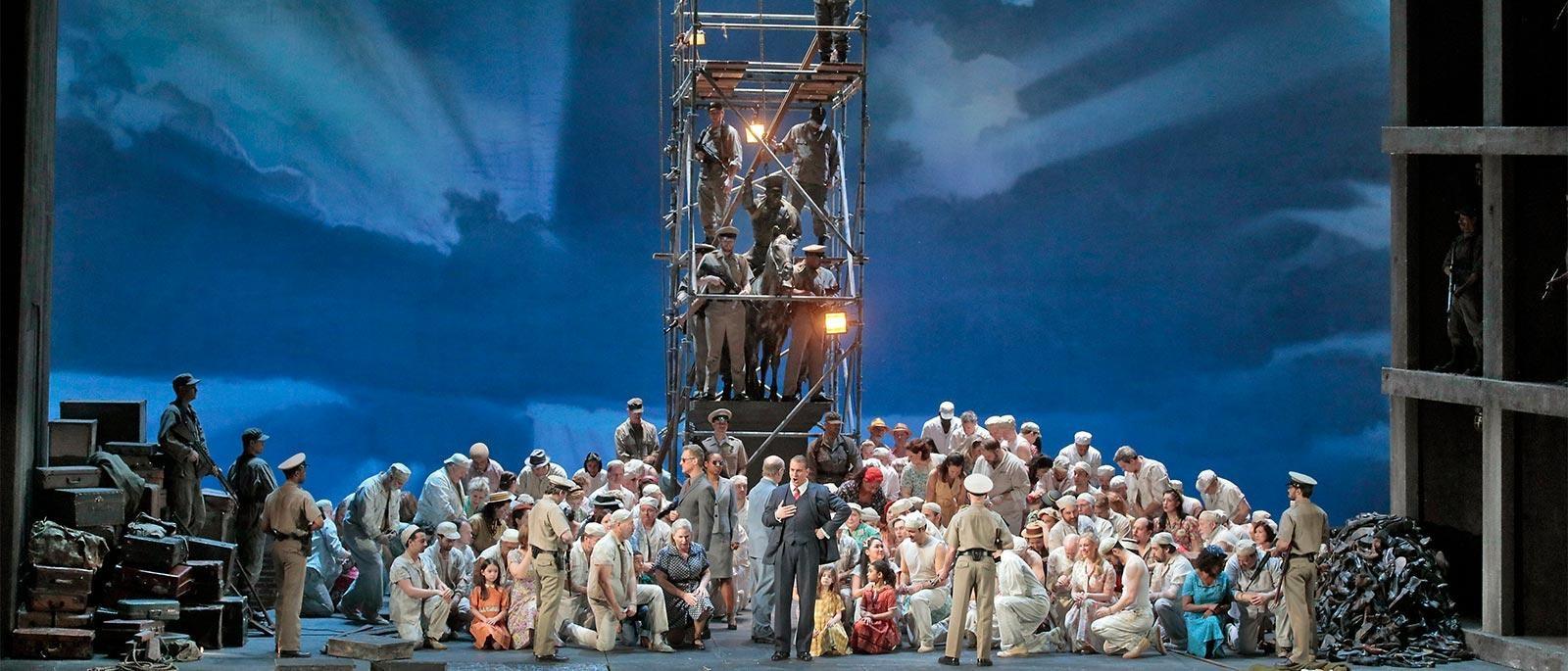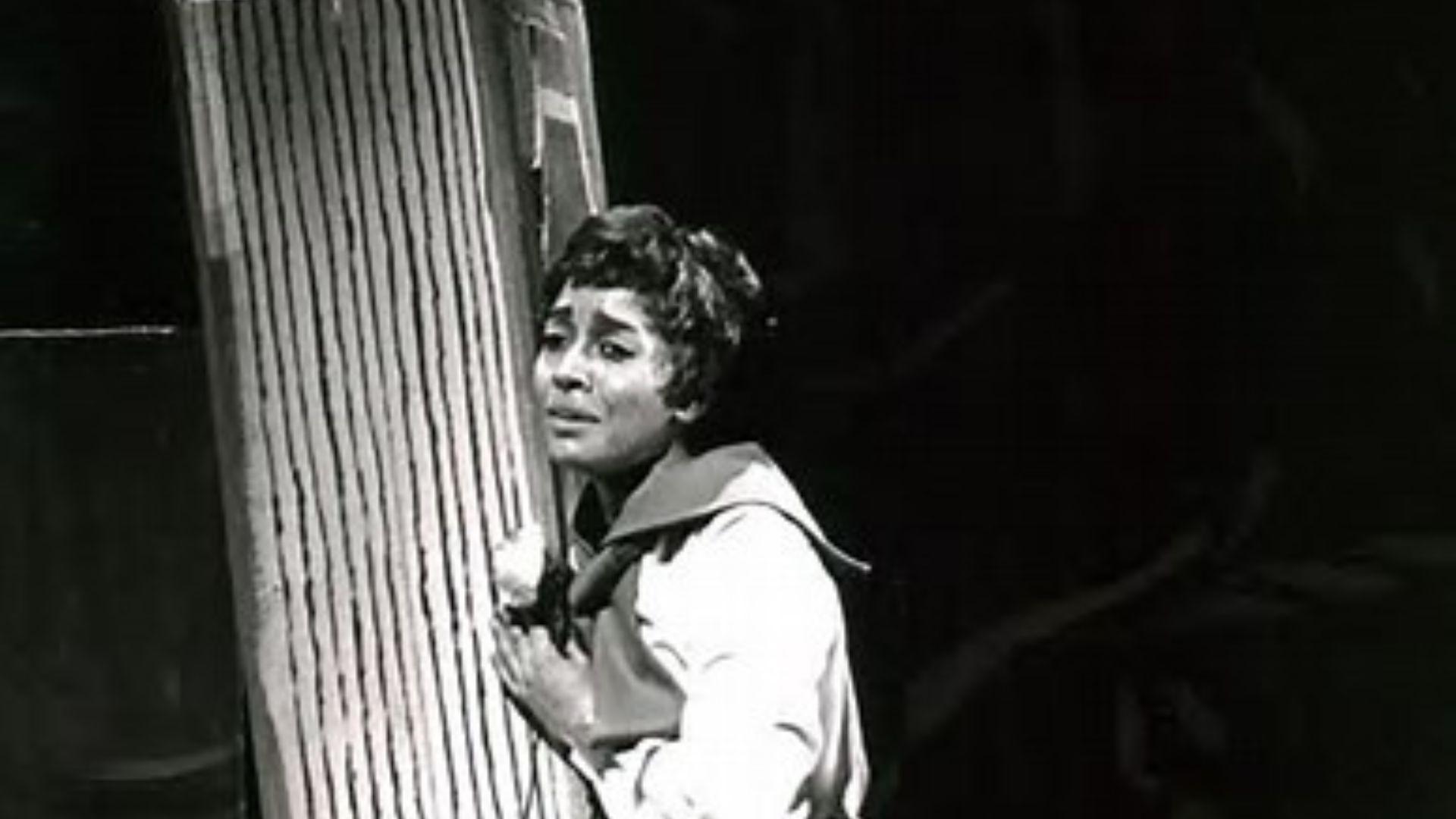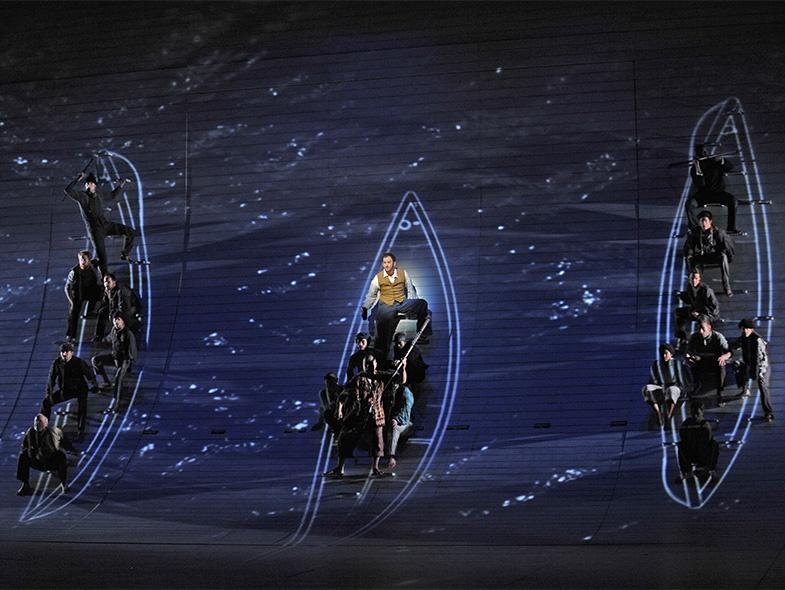
Enjoy complete performances of world famous operas from Verdi, Puccini, Mozart and many more Saturdays at 1pm.
For many years, radio broadcasts from "The Metropolitan Opera" have been a Saturday tradition in many American households. Met Opera broadcasts are usually performed live from Lincoln Center in New York City and can be heard from December through May on WNED Classical.
The WFMT Radio Network Opera series complements the Metropolitan Opera Broadcasts, filling in the schedule to complete the year. From Milan to New York, Barcelona to Chicago, you'll have a front-row seat to performances from some of the world’s greatest opera companies and performers.
The Metropolitan Opera Radio Broadcast Series 2024-2025 | Saturdays at 1pm
The 2024-2025 The Metropolitan Opera Radio Broadcast Series, runs December 7 through June 7, 2025. listeners can hear thrilling performances by today’s most celebrated artists as well as legendary stars from the past, captured in live broadcasts spanning nine decades of Met history.
Broadcasts can be heard on WNED Classical at 1pm every Saturday except as noted.
Tune in at 94.5 FM in Buffalo or anywhere in the world our website's live player or WNED Classical app.
See what’s coming up below:
March 15 | Fidelio | Beethoven
Following a string of awe-inspiring Met performances, soprano Lise Davidsen stars as Leonore, who risks everything to save her husband from the clutches of tyranny. Tenor David Butt Philip is the political prisoner Florestan, sharing the stage with bass-baritone Tomasz Konieczny as the villainous Don Pizarro, veteran bass René Pape as the jailer Rocco, and soprano Ying Fang and tenor Magnus Dietrich, in his company debut, as the young Marzelline and Jaquino. Bass Stephen Milling sings the principled Don Fernando, and Susanna Mälkki conducts the Met’s striking production, which finds modern-day parallels in Beethoven’s stirring paean to freedom.
MUSIC
The powerful and innovative use of the orchestra found throughout Fidelio is not surprising from Beethoven. Likewise, the chorus’s evocative music is expected from the composer of such notable choral works as the Missa Solemnis and the triumphant choral finale of Ninth Symphony. Yet some of the score’s greatest surprises and pleasures derive from solo and ensemble vocal writing. Beethoven creates hierarchies among his characters, from the earthly to the exalted, which are instantly recognizable in their music.
Composer: Ludwig van Beethoven
Conductor: Susanna Mälkki
Venue: The Metropolitan Opera House, Lincoln Center for the Performing Arts NYC
CAST:
Leonore: Lise Davidsen
Florestan: David Butt Philip
Rocco: René Pape
Don Pizarro: Tomasz Konieczny
Marzelline: Ying Fang
Jaquino: Magnus Dietrich
Don Fernando: Stephen Milling
March 22 | L'Enfant et les Sortilèges / Les mamelles de Tirésias | Ravel / Poulenc
Celebrating the 100th anniversary of Ravel's opera with a performance from February 28, 1981
The Metropolitan Opera’s 2024-25 season of Saturday matinee broadcasts continues on March 22 with a double bill of French operas in a performance from 1981. It begins with L’Enfant et les Sortilèges – The Child and the Enchantments – by Maurice Ravel, with a libretto by the revered French writer Colette. The broadcast honors the 100th anniversary of this whimsical and moving opera, which had its world premiere on March 21, 1925. The performance features mezzo-soprano Hilda Harris and a dazzling ensemble cast in this tale of a naughty child who is chastened when the objects and creatures in his room and garden speak out against his heedless cruelty. The second half of the broadcast is Les Mamelles de Tirésias – The Breasts of Tiresias – a surrealist farce by Francis Poulenc. Soprano Catherine Malfitano starred as Thérèse the housewife, who discards her gender and becomes Tirésias the general – opposite baritone David Holloway as her husband, who then takes on the feminine role of childbearing.
Composers: Maurice Ravel and Francis Poulenc
Conductor: Manuel Rosenthal
Venue: The Metropolitan Opera House, Lincoln Center for the Performing Arts NYC
CAST:
L’Enfant et les Sortilèges
Child: Hilda Harris
Fire: Ruth Welting
Princess: Gail Robinson
Les Mamelles de Tirésias
Thérèse, Fortuneteller: Catherine Malfitano
Husband: David Holloway
March 29 | Moby Dick | Jake Heggie
Following the haunting Met premiere of his first opera, Dead Man Walking, composer Jake Heggie returns to the company with his 2010 adaptation of Herman Melville’s sea-drenched, heaven-storming epic. A cast of standouts comes together on the decks of the Pequod, with tenor Brandon Jovanovich starring as the monomaniacal Captain Ahab, implacable in his pursuit of the white whale; tenor Stephen Costello as Greenhorn, the opera’s version of Ishmael; baritone Peter Mattei as the even-keeled first mate Starbuck; and bass-baritone Ryan Speedo Green as the Polynesian harpooneer Queequeg. The cast also features soprano Janai Brugger as Pip, tenor William Burden as Flask, and baritone Malcolm MacKenzie as Stubb. Maestro Karen Kamensek takes the podium for a stunning staging by Leonard Foglia that arrives at the Met newly enlarged and refined following acclaimed runs in Dallas, San Francisco, Los Angeles, and Washington, D.C.
MUSIC
Heggie’s score evokes the grandeur of tone and scope of the novel’s prose, and from its very first bars, delineates individuals and ideas with quasi-Wagnerian motifs. The orchestra is featured prominently, as is the all-male chorus, who give voice to a range of emotions. The opera’s most striking moments come as solo voices are combined in duets and ensembles that express the many confrontations in the human journey: good vs. evil, love vs. death, hope vs. despair.
Composer: Jake Heggie
Conductor: Karen Kamensek
Venue: The Metropolitan Opera House, Lincoln Center for the Performing Arts NYC
CAST:
Captain Ahab: Brandon Jovanovich
Greenhorn: Stephen Costello
Starbuck: Peter Mattei
Queequeng: Ryan Speedo Green
Pip: Janai Brugger
Stubb: Malcolm MacKenzie
Flask: William Burden


